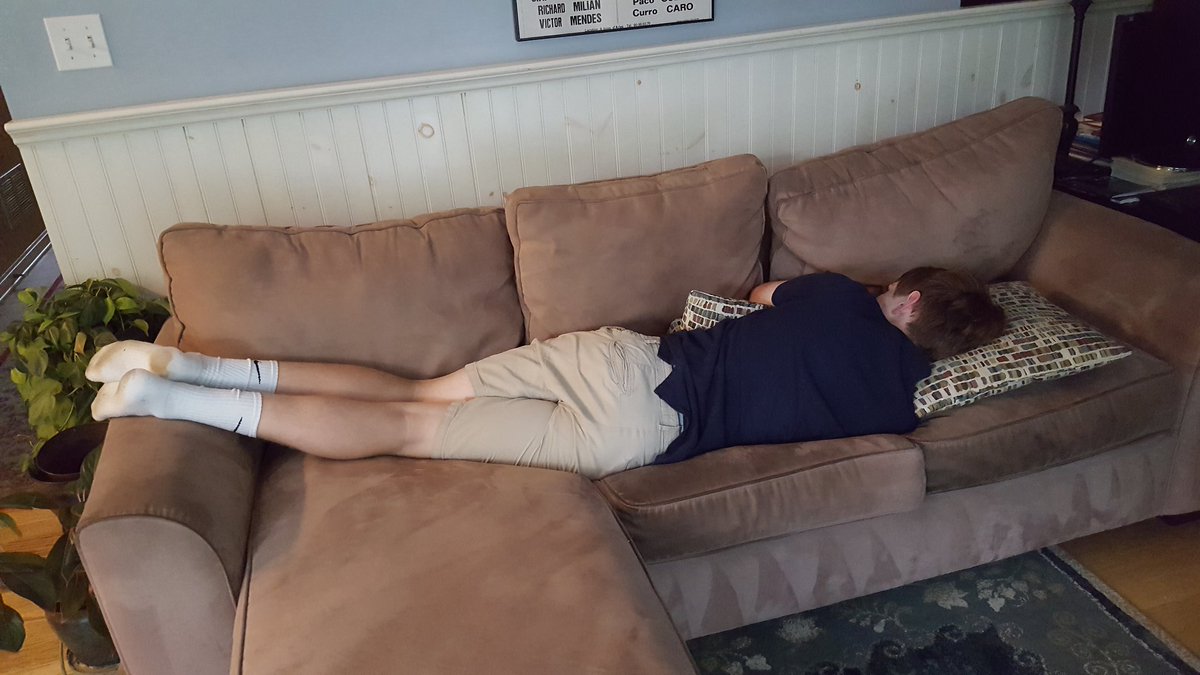|
Note: This blog is in response to the following question, inspired by the new film, "Sleepless in America,"which premiers November 30, 2014 at 8 p.m. ET on the National Geographic Channel: "Do you believe legislation should be passed to start schools later given the data surrounding adolescents and the effects of sleep deprivation?" I used to think school start times should be a local decision – until I spent 15 years working to get my district to delay a 7:17 a.m. school bell making my children sick and chronically sleep-deprived. Today my children are grown and flown, and nothing has changed. As a mother I knew instinctively that dragging my teenagers out of bed before sunrise was harmful and counterproductive. As a science writer and historian I knew that the very early bell times that had become standard over past decades were fueling a public health crisis. But over the years I also realized that powerful forces were maintaining the status quo. I also realized that no powerful and sustainable group was motivated to overcome them. These realizations led me to start a national petition for a minimum public school start time. The petition got signatures from people in all 50 states and jumpstarted Start School Later, a nonprofit dedicated to the idea that no child of any age should be required by law to start class at unsafe, unhealthy hours. Hearing stories from advocates all over the country confirmed my conviction that this wasn’t an issue that could be left in the hands of lay school boards. Again and again, I saw that even when schools wanted to change, politics, money, and myth often trumped the best interests of the kids. Just as with smoking, seatbelts, drunk driving and other public health issues - or, really, just about any major social reform in this country’s history - compelling evidence was not enough to protect public health and safety. Equally important was a combination of collective action and legislation on local, state, and national levels. The idea that schools are somehow immune from intervention on the part of state or federal authorities is a myth. Many aspects of school policy are regulated by state or federal government, particularly when local school systems cannot or will not set policies to protect basic rights, including rights to health, safety, and education. This is certainly the case for sleep and school start times, which are now widely recognized as public health issues that have gone unaddressed by local schools despite widespread calls for change since the 1990s. The United States has a long history of recognizing the protection of health and safety as a core function of government, and over the years many measures originally regarded as inappropriate or overly intrusive are now considered essential protections. Many federal mandates have been enacted to ensure minimum levels of health and safety for all children, including nutrition standards for school meals, school wellness policies, and gun-free zones. The number of state child health and safety protection laws is even greater, including laws to require immunizations for school entry, protect against sports-related traumatic brain injuries, and prevent drunk driving. Setting a minimum standard for safe, healthy school hours is also very different than telling local schools precisely what time to run classes. Specific school hours clearly must be set locally to reflect specific demographics, topography, values, and budgets. However, establishing a barebones minimum before which schools should not begin mandated instruction is as fundamental as requiring schools to remove asbestos, or to turn on the heat when the temperature drops. Just like federal regulations prohibiting school lunches from being served before 10 a.m. or after 2 p.m., it merely provides a boundary to protect children’s health and well-being. Whether this minimum is set through at a federal, state, or even local level, it needs to be established to protect children unless we want to wait several more generations to see if the nearly 15,000 school districts in this country figure out ways to do this alone - unlikely, given the complications of changing school schedules, which, regardless of validity, are politically persuasive. By changing many school districts at once through legislation, many perceived obstacles (like incompatible sports, daycare, and work schedules, or teachers who live in one district but teach in another) disappear. “Legislation” doesn’t necessarily mean a mandate, of course. It can also take the form of a regulation specifying an earliest acceptable opening or bus pick-up time, or voluntary guidelines setting forth parameters for developmentally appropriate hours. It can take the form of a study to find ways to help local schools ensure sleep-friendly hours. It can even take the form of a resolution supporting later start times. Whether mandates, regulations, guidelines, or studies, however, something must be legislated if we want to see safe, healthy school hours any time soon. AuthorTerra Ziporyn Snider, PhD is Start School Later's Executive Director and Co-Founder.
|

 RSS Feed
RSS Feed